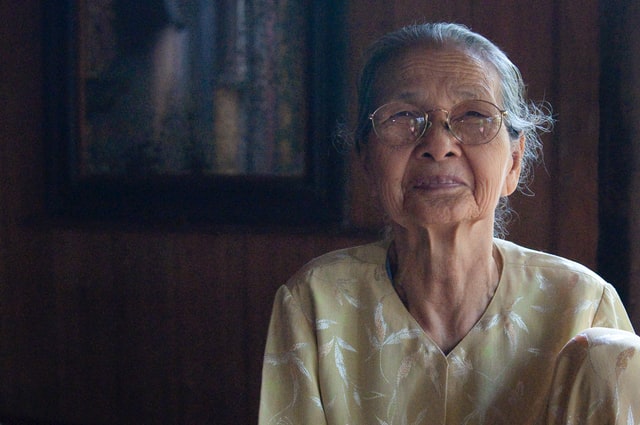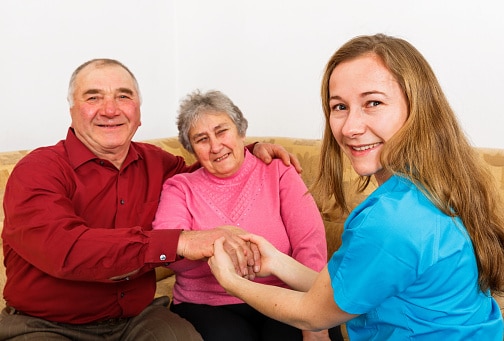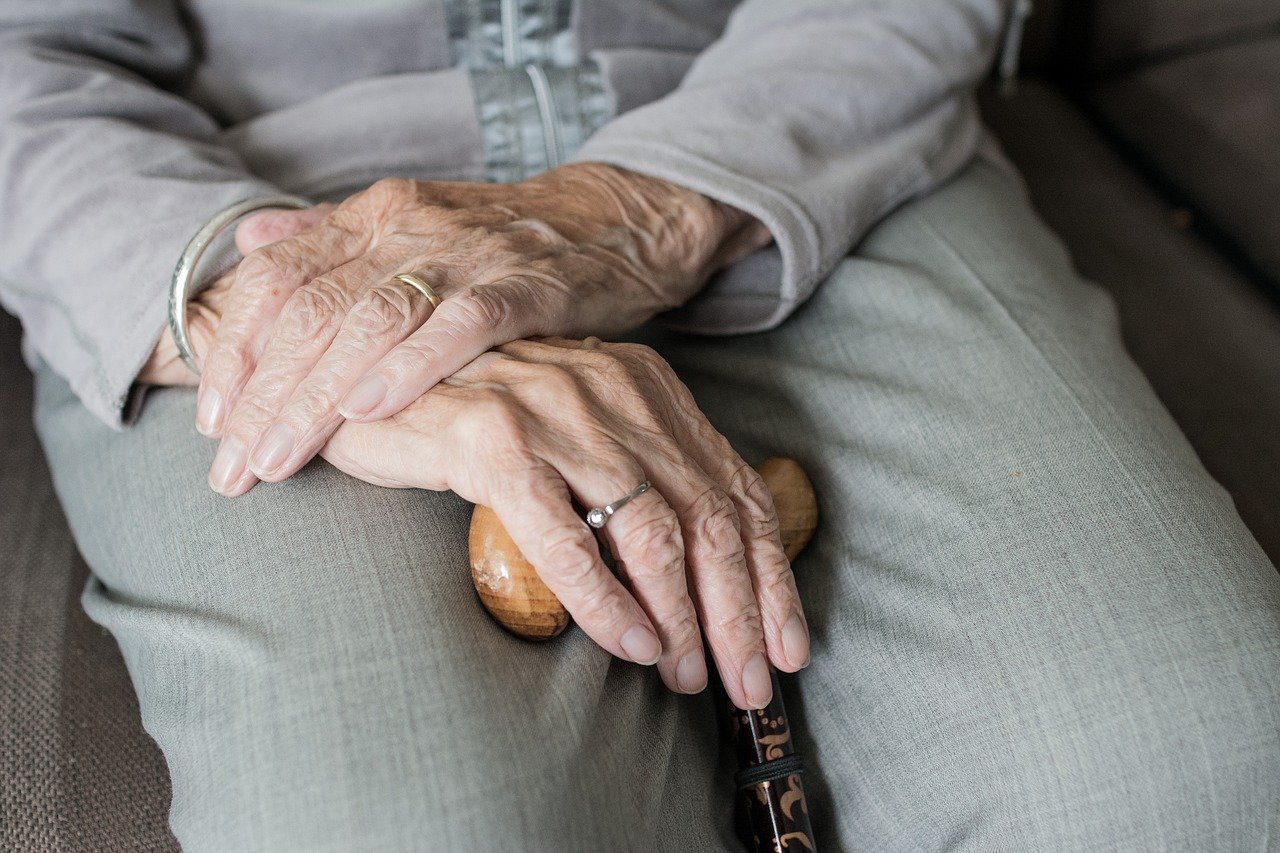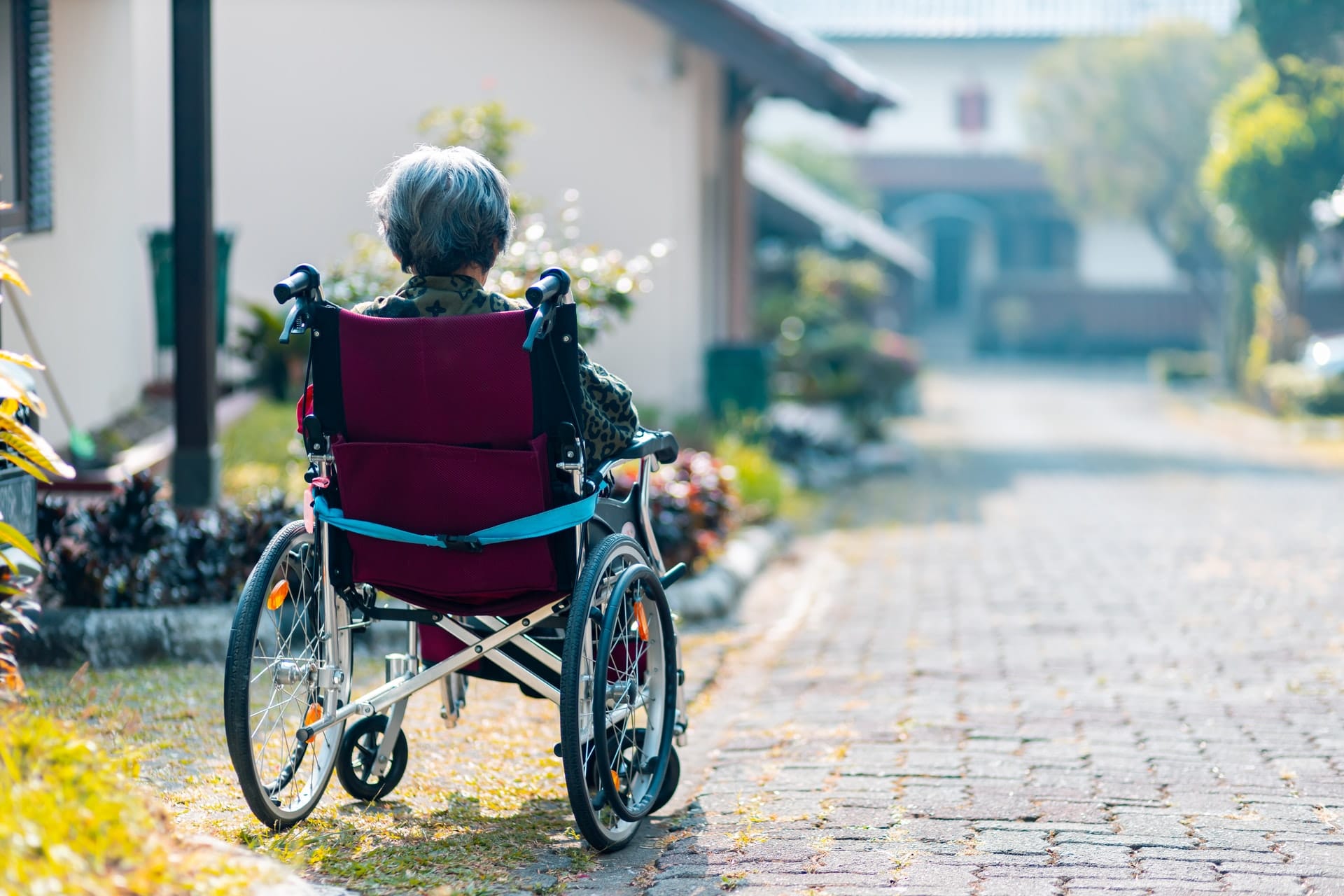
Depression in the Elderly: Causes, Management, and Treatment
This article has been medically reviewed by Dr. Martin Duggan in 2021.
This content is not intended to be a substitute for professional medical advice, diagnosis, or treatment. Always seek the advice of your physician or another qualified health provider with any questions you may have regarding a medical condition.
Caregivers often mistake signs of depression in the elderly as a normal part of aging. Sometimes, depression symptoms are confused with symptoms of existing chronic physical or mental conditions. Sometimes, the opposite happens. The term pseudodementia refers to cases where depression can look a lot like dementia – memory disturbance, slow speech, or poor attention span. It is essential to correctly diagnose depression, as when undiagnosed, depression can have far-reaching consequences in older adults.
The World Health Organization estimates that about 7% of the elderly worldwide suffer from depression. Harvard University found that 1%-5% of seniors who live independently in the community are depressed. An even larger percentage of seniors who are dependent on care suffer from depression.
Changes in brain chemicals can cause depression, and it is a chronic disorder, just like diabetes or arthritis. Luckily, depression can be treated and managed effectively by health care providers. However, if left untreated, it not only affects the person’s quality of life, but also increases their risk of physical health problems. People with depression may have delayed recovery from illness or injury. An older person with untreated depression is more likely to suffer an earlier death and more likely to commit suicide. People are often surprised to learn that the age group with the highest rate of suicide is the group above age 65 – men in particular.
As a caregiver, you are likely the first to observe signs of depression and can be tasked with navigating the best way forward.
Recognizing depression in the elderly
The American Psychological Association reported that major depressive episodes are less common in seniors than in younger adults. However, the elderly tend to experience minor depression and subtle symptoms as frequently, or even more often, than younger groups.
But how does one distinguish between grief and depression after a significant life event? With grief, there is usually a roller-coaster of emotions, however, gradually the person will experience a greater number of “good” days. On the other hand, if someone continues to feel low most of the time, they are most likely suffering from depression.
Signs of depression
The most common signs and symptoms of depression in the elderly are:
- Low energy and motivation – moving slowly and neglecting personal hygiene and appearance.
- Difficulty conducting household tasks – getting dressed, cooking, and cleaning is just too much effort.
- Sleep disturbances and feeling tired all the time – especially waking up too early in the morning.
- Cognitive decline – difficulty in concentrating, remembering, and making decisions.
- Loss of interest – no longer pursuing hobbies or other activities they used to enjoy.
- They withdraw from social interaction.
- Pessimistic attitude – seldom feeling happy or laughing, expressing mostly negative thoughts such as feelings of hopelessness, uselessness, and that everything in life is complicated.
- Physical symptoms – loss of appetite with weight loss or overeating, persistent and vague physical complaints such as increased aches and pains, heart palpitations, digestive problems, restlessness, and dizziness.
As a caregiver, it can be challenging to identify if these symptoms are due to depression or another health condition. Talking with a licensed psychologist or doctor can be the best path forward.
Causes of depression
Depression in the elderly has many different causes and there is usually an interaction between various physical, psychological, and social causes.
Genetics and personality factors play a role in depression as well as having had previous episodes of depression.
Physical and health-related causes of depression
Specific physical and health conditions can cause depression. These include heart disease, type 2 diabetes, lack of essential nutrients in the diet, thyroid conditions, and side effects of certain medications. Some of these conditions can prevent seniors from continuing to be independent, which can also lead to depressive symptoms.
Another leading cause of depression in the elderly is lack of activity. Physical activity increases blood flow to the brain, and it also triggers the release of mood-enhancing chemicals, which can help prevent depression and anxiety.
Stressful life events
The loss of meaning and purpose in life after retirement causes some seniors to become depressed. Some seniors will struggle to find a new path forward in their new stage of life.
A sudden serious health condition such as a heart attack, cancer diagnosis, or a hip fracture can trigger a depressive episode. This new health condition may lead to other life-altering situations, such as becoming dependent and possibly having to move to a nursing home.
Depression can also often follow the passing of a spouse or friend, something the elderly experience more often than others.
Loneliness and isolation
Active engagement can have a large impact on your senior’s mood. Loved ones who are not married or are widowed often have high rates of depression. Moving your loved one into a senior living community where friends can surround them can be a great path forward.
Managing depression in the elderly
Treatment of depression can prevent long-term effects on the body and the mind. Unfortunately, it often goes undiagnosed.
The elderly themselves, and those close to them, may not recognize the symptoms as depression. They might accept their feelings as a natural part of growing older and the life changes they are going through, or see the signs as part of an existing chronic disease. Furthermore, your senior might not seek help due to the stigma, which is often attached to mental illness.
Even health care providers frequently miss the signs of depression in the elderly for many of the same reasons mentioned above and because they might be focusing on the patient’s medical condition. The elderly themselves often don’t report their depressive symptoms, or when they do, they tend to mention the vague physical symptoms.
As a caregiver, if you suspect your loved one is depressed, it can be helpful to accompany them to the health care provider. During the consultation, you can discuss what you have observed and raise the possibility of depression.
Treatment of depression in the elderly
The health care provider will examine the patient to exclude medical conditions, or even current medications, as a cause of the depressive symptoms.
Most seniors can benefit from typical methods of treating depression such as medication and psychotherapy. As a caregiver, if your loved one starts to take anti-depressants, it is important to make sure they are consistently taking their medication. Inconsistent administration of medication can lead to anti-depressants losing their effectiveness.
For mild depression, or if the condition followed a stressful event such as bereavement, psychotherapy alone may be effective. In fact, some mental health care professionals believe that psychotherapy is more effective than medication for the elderly, and preferable in the light of the frequent over-medication of seniors.
As a caregiver, you can encourage and facilitate the following 7 lifestyle behaviors that could help to prevent depression or get those who are depressed back on track:
1. Physical exercise
Research has shown that exercise could be as good as medication for treating depression. Seniors should be active for about 30 minutes and for at least 5 days a week. If necessary, join your loved one on walks or in an exercise class, or arrange for a companion.
2. Sufficient sleep
If your loved one is battling with insomnia, try and encourage the following natural methods for improving sleep: be as active as possible during the day, get into a fixed sleep routine, and wind down for an hour before sleep with relaxing activities. Try to avoid sleeping tablets, but consult a health care practitioner if the problem persists.
3. Adequate levels of Vitamin D
A deficiency of vitamin D can lead to depression. In general, people need around 30 minutes of sunlight a day for the body to manufacture enough vitamin D. During the winter months, seniors can stay inside and instead be given vitamin D supplements.
4. A healthy diet
Seniors often eat what is easiest and may not get enough fruit and vegetables to stay healthy. Using a meal delivery service may help the elderly to eat a more varied diet. Another alternative could be to consider talking to your senior about moving into a senior living community. Senior living communities typically offer up to 3 meals a day for their community members.
5. Managing negative thinking
Activities that help to turn around pessimistic thought patterns include meditation, prayer, journaling, and gratitude lists. As a caregiver, it can be helpful to listen to them and steer the conversation to more positive topics.
6. Build social connections
Engaging with others face-to-face is a basic human need and social networking is important for mental health. Be sure to stay in touch regularly and encourage your loved one to join local clubs, such as a bridge group, a day center for the aged, or to volunteer with a local charity.
7. Changing living arrangements
If the cause of your loved one’s depression is loneliness, consider moving them into a senior living facility. Having friends around can help immensely.
The last word
While depression in the elderly is common, both caregivers and seniors should never accept it as a normal part of the aging process.
Caregivers should lookout for signs of depression in your loved one, help them get treatment for the condition if needed, and encourage them to make the lifestyle changes necessary to maintain health and happiness.
Sources:
- Mental health of older adults, World Health Organization, www.who.int
- Recognizing and treating depression in the elderly, Harvard Health Publishing, www.health.harvard.edu
- Depression and Suicide in Older Adults, American Psychological Association, www.apa.org
- Depression in Older Adults, National Center for Biotechnology Information, www.ncbi.nlm.nih.gov
- Exercise is an all-natural treatment to fight depression, Harvard Health Publishing, www.health.harvard.edu
Related Articles

When Is It Time for Assisted Living?
Wondering if it is time for assisted living for your loved one is a common question for caregivers. As a caregiver, you might have been considering the question for months or possibly even years. Your loved one might have declined to continue the discussion as the thought of moving out of their family home and […]

All About Adult Day Care: Community and Costs
Adult day care is a fairly new concept for caregivers. The basic idea is to provide a secure place where seniors can enjoy social activities during the day and be provided nursing care as needed. It’s a hybrid model of eldercare that prioritizes community. At the same time, seniors get help with common custodial tasks […]

An Overview of Senior Rehabilitation Centers
Recovering from injury or illness in your golden years may take time and support. That’s where senior rehabilitation centers become essential. If you need a temporary stay to recover from injury or illness, senior rehabilitation centers can be the solution to get expert care and daily support. In this article, we’ll give you an overview […]

A Caregiver’s Guide to ADLs and IADLs
This article has been medically reviewed by Dr. Martin Duggan in 2021. This content is not intended to be a substitute for professional medical advice, diagnosis, or treatment. Always seek the advice of your physician or another qualified health provider with any questions you may have regarding a medical condition. As a family caregiver, your […]

What is a Mechanical Soft Diet? Explanation, Preparation, and Meal Ideas
This article has been medically reviewed by Dr. Martin Duggan in 2021. This content is not intended to be a substitute for professional medical advice, diagnosis, or treatment. Always seek the advice of your physician or another qualified health provider with any questions you may have regarding a medical condition. As a caregiver, you may […]

Benefits for Seniors with Disabilities
Oftentimes, seniors with disabilities qualify for health and financial assistance programs. However, they may be unaware of them or are confused about the eligibility requirements and enrollment process. Let’s go over the key programs for seniors with disabilities so that you have the information you need to get the benefits you deserve. Note on the 3 […]